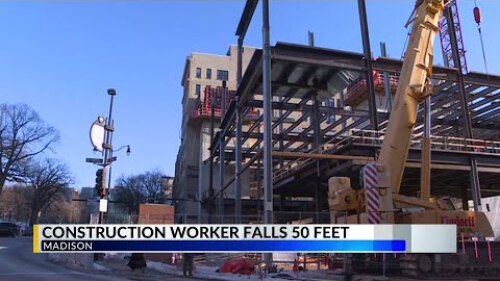By Peter Breen
Las Vegas Review-Journal
LAS VEGAS — Anna Prendergast, a major in the U.S. Air Force who trains ICU nurses at UMC, doesn’t think anyone feels normal the first time they take care of a patient with a gunshot wound.
While healthcare workers may, over time, suffer secondary trauma from treating patients, people like Prendergast can get at least somewhat acclimated to caring for serious injuries and wounds after repeated exposure, Prendergast told the Review-Journal last week.
If military medics must treat soldiers in a combat zone, the military wants the medics to have already been exposed to wounds similar to ones suffered in combat zones, Prendergast said. At the University Medical Center, military medics encounter serious injuries under the supervision of “cadre” — officers responsible for training.
“You can experience it here with cadre to help lead you through that experience, to understand it and mentally process it a little bit better, so then you’re a little more resilient when you deploy,” Prendergast said.
A robust military-civilian partnership exists at UMC, in part, so that active-duty medical providers can prepare for deployment.
At any given time, the county hospital is home to roughly 100 military medics — nurses, technicians and doctors. Some live locally or come to train from nearby Nellis Air Force Base. Others hail from bases around the globe.
The partnership, which began more than two decades ago, involves three Air Force organizations, UMC, UNLV, the VA Medical Center in North Las Vegas, the Southern Nevada Health District and other civilian groups.
Col. Jeremy Kilburn, a pulmonologist, directs the Office of Military Medicine, an office established in 2019 to spearhead the coordination of the partnership.
Kilburn helped explain how Air Force medics who’ve already been deployed and exposed to serious wounds could also benefit from one of the military programs at UMC.
A nurse at an Air Force base in Italy, for example, is not doing much medical care because their job is to take care of healthy airmen mostly between the ages of 18 and 25, Kilburn said.
“It’s very hard for these folks in these places that don’t have the volume or the complexity or acuity to keep up what’s a very perishable skill set,” he said.
Lt. Col. Becky Bryant, an emergency room nurse instructor, runs a two-week program that provides people like that hypothetical nurse from the base in Italy an opportunity to shake off the rust.
The “rotators” who come through Bryant’s program spend their time across UMC’s numerous units, including the ICU, emergency room and trauma center.
“When they leave here, our hope is they’ve got enough experience that they feel comfortable in their skills — they feel like they know what they’re doing again,” Bryant said.
A robust partnership
In addition to the medical professionals stationed at Air Force bases who’ve “made the rank” and now work desk jobs, members of special operations surgical teams train at UMC, as well.
The teams must be ready to accompany special forces on operations across the globe — wherever the battle is — on a 24-hour notice.
Since most preventable combat deaths occur before patients get to a surgical facility, the partnership also includes a pre-hospital medical program. The program provides military medics the chance to go out with local air and ground ambulance companies to practice “full scope medical care,” according to Kilburn.
Because the Air Force Medical Service knows that being good at infectious disease control, is just as important as being good at treating gunshot wounds when it comes to saving and improving lives, the medical service uses the partnership to become more well-rounded.
Every military provider who treats patients at UMC is not a specialist in trauma surgery. Some have specialties in fields such as internal medicine and plastic surgery.
Another noteworthy facet of the partnership is graduate medical education. Kilburn said the Air Force pays for 41 spots at UNLV’s medical school; those who take the spots train at UMC.
Like every facet of the partnership, the graduate spots at UNLV benefit both the Air Force and the community. While producing physicians for the Air Force, the spots expand medical education locally, helping to relieve Southern Nevada’s physician shortage, according to Kilburn.
“A big push from the state, the governor, certainly the local community leaders, is to produce more graduate medical education spots, and those spots have costs associated with them,” Kilburn said.
The local community is healthier because of the care provided by the military medics involved in the whole partnership, and Air Force medics get better at their jobs while working all across UMC and in the community.
“My job, as I see it, is to overlap as much as possible the needs of the community and the needs of the military, specifically the Air Force,” Kilburn added.
UMC CEO Mason Van Houweling, who was a healthcare administrator during the 25 years he served in the Air Force Reserve, said military medics are excellent at caring for patients because they have core values like honor and integrity.
“They’re consummate professionals,” Van Houweling said. “The professional soldier is instilled in them from day one.”
©2024 Las Vegas Review-Journal.
Visit reviewjournal.com.
Distributed by Tribune Content Agency, LLC.










